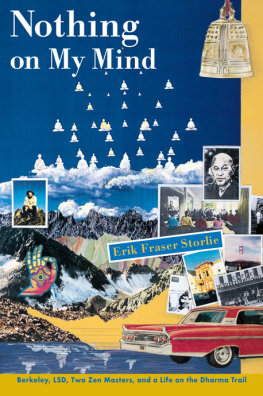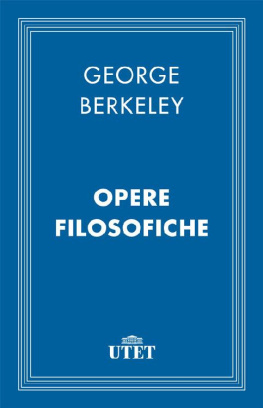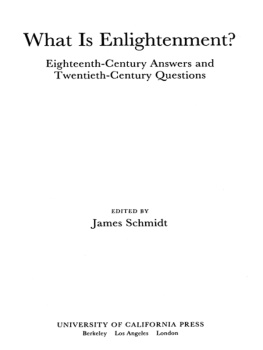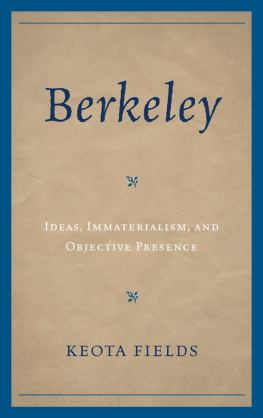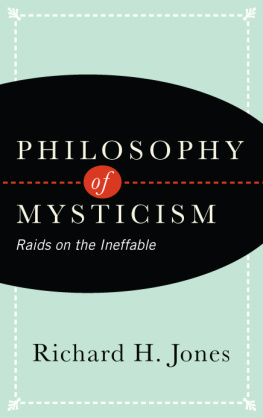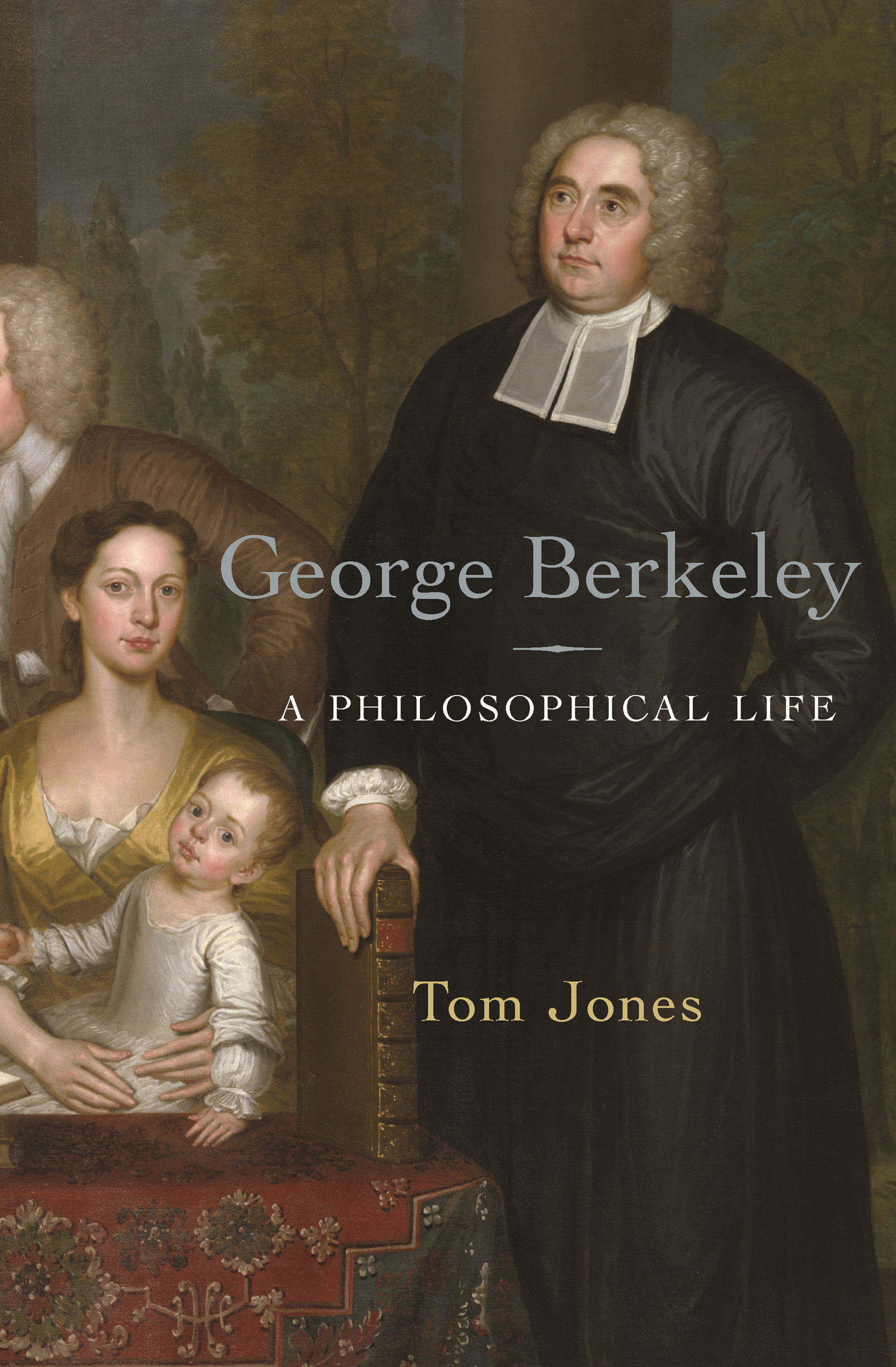GEORGE BERKELEY
George Berkeley
A PHILOSOPHICAL LIFE

Tom Jones
PRINCETON UNIVERSITY PRESS
PRINCETON & OXFORD
Copyright 2021 by Princeton University Press
Princeton University Press is committed to the protection of copyright and the intellectual property our authors entrust to us. Copyright promotes the progress and integrity of knowledge. Thank you for supporting free speech and the global exchange of ideas by purchasing an authorized edition of this book. If you wish to reproduce or distribute any part of it in any form, please obtain permission.
Requests for permission to reproduce material from this work should be sent to
Published by Princeton University Press
41 William Street, Princeton, New Jersey 08540
6 Oxford Street, Woodstock, Oxfordshire OX20 1TR
press.princeton.edu
All Rights Reserved
Library of Congress Cataloging-in-Publication Data
Names: Jones, Tom, 1975 author.
Title: George Berkeley : a philosophical life / Tom Jones.
Description: Princeton : Princeton University Press, [2021] | Includes bibliographical references and index.
Identifiers: LCCN 2020040051 (print) | LCCN 2020040052 (ebook) | ISBN 9780691159805 (hardback) | ISBN 9780691217482 (ebook)
Subjects: LCSH: Berkeley, George, 16851753. | Christian philosophersIrelandBiography. | Church of IrelandBishopsBiography.
Classification: LCC B1347 .J66 2021 (print) | LCC B1347 (ebook) | DDC 192 [B]dc23
LC record available at https://lccn.loc.gov/2020040051
LC ebook record available at https://lccn.loc.gov/2020040052
Version 1.0
British Library Cataloging-in-Publication Data is available
Editorial: Ben Tate and Josh Drake
Production Editorial: Mark Bellis
Jacket Design: Pamela Schnitter
Production: Danielle Amatucci
Publicity: Jodi Price and Amy Stewart
Copyeditor: Cynthia Buck
Jacket Credit: John Smibert (16881751), The Bermuda Group (Dean Berkeley and His Entourage), 1728, reworked 1739. Oil on canvas, 69 1/2 x 93 in. Gift of Isaac Lothrop. Photo: Yale University Art Gallery.
[T]is plain, that we cannot know the Existence of other Spirits, otherwise than by their Operations, or the Ideas by them excited in us. [] [T]he Knowledge I have of other Spirits is not immediate, as is the Knowledge of my Ideas, but depending on the Intervention of Ideas, by me referd to Agents or Spirits distinct from my self, as Effects or concomitant Signs. [] GOD, is known as certainly and immediately as any other Mind or Spirit whatsoever, distinct from our selves. [] A Human Spirit or Person is not perceivd by Sense, as not being an Idea; when therefore we see the Colour, Size, Figure, and Motions of a Man, we perceive only certain Sensations or Ideas excited in our own Minds: And these, being exhibited to our view in sundry, distinct Collections serve to mark out unto us the Existence of Finite, and Created Spirits like our selves. Hence tis plain, we do not see a Man, if by Man is meant that which Lives, Moves, Perceives, and Thinks as we do: But only such a certain Collection of Ideas, as directs us to think there is a distinct Principle of Thought and Motion, like to our selves, accompanying and represented by it. And after the same manner we see GOD[.]
PRINCIPLES OF HUMAN KNOWLEDGE, 145, 14748
ILLUSTRATIONS
ACKNOWLEDGEMENTS
WORKING WITH BEN Tate and his colleagues Josh Drake and Mark Bellis at Princeton University Press has been a great privilege. I would like to thank Ben in particular for his sustained engagement with every aspect of this book. I am very grateful to Cynthia Buck and Tom Broughton-Willet for their excellent work in copyediting and indexing the book. I would also like to recognise the contribution made by colleagues responsible for marketing and production work. I thank the anonymous readers for the Press for their generous commentary on my typescript and the opportunity to improve the book in the light of their suggestions.
Essential archival work for this book was funded by the Carnegie Trust for the Universities of Scotland, who supported a month of research in London and Dublin in the summer of 2009; the Leverhulme Trust, who awarded me a Research Fellowship for the academic year 20142015 to continue archival work in London and Dublin and draft early chapters of the book; and the Huntington Library, who awarded me an Andrew Mellon Foundation Fellowship to work with the librarys resources in the summer of 2017. I am also grateful to the Royal Society of Edinburgh for supporting a series of research workshops on The Philosophical Life which I coordinated with my colleague James Harris from May 2016 to February 2017.
The research for this book would have been impossible without the assistance of colleagues in numerous libraries and archives. I would like to thank the staff of the Weston Library at the Bodleian Library; the British Library, particularly in the Rare Books and Music and Manuscript Reading Rooms; the Cambridge University Library Munby Rare Books Reading Room; the Huntington Library Ahmanson Reading Room; the Lambeth Palace Library; the National Archives; the National Library of Scotland, particularly in the Special Collections Reading Room; the Representative Church Body of the Church of Ireland Library; Natasha Serne at the Library of the Royal Dublin Society; St Andrews University Library, particularly in the Special Collections Napier Reading Room; and the Manuscripts and Archives Department at the Library of Trinity College Dublin. Anne Marie Menta at the Beinecke Rare Book and Manuscript Library of Yale University was very helpful in providing reproductions of correspondence between Anne Berkeley, George Berkeley Jr, and Samuel Johnson and William Samuel Johnson.
In the summer of 2017, I had the pleasure of working with Bjrn Lambrenos as part of the University of St Andrews Undergraduate Research Assistantship scheme. Bjrn assisted me with bibliographical research into Berkeleys Bermuda project and also the reception of Berkeley in nineteenth-century Americaan aspect of Berkeleys afterlife that could not ultimately be addressed in this book. Antares Wells, the picture researcher for this book, made light work of a daunting task. I thank them both for their contributions.
I first broached the possibility of writing a biography of Berkeley at a meeting of the International George Berkeley Society in Tartu, Estonia, in September 2005. That meeting was organised by Bertil Belfrage and Roomet Jakapi, and it also introduced me to a community of Berkeley scholars who have played a significant role in shaping my understanding of my subject and encouraging me to persist with it. They include Timo Airaksinen, Margaret Atherton, Talia Mae Bettcher, Wolfgang Breidert, Richard Brook, Genevive Brykman, Stephen H. Daniel, Marc Hight, Jorgen Huggler, Laurent Jaffro, Charles McCracken, Ville Paukonen, and Tom Stoneham. I also had the privilege of speaking to meetings of the Society in Karlsrhe in 2009 and Helsinki in 2010, and I thank Bertil, Wolfgang, and Ville for those opportunities. In February 2017, Richard Whatmore and Rory Cox invited me to speak at the Institute of Intellectual History at the University of St Andrews, and Phil Connell invited me to do so at the Eighteenth-Century and Romantic Research Seminar at the Faculty of English, University of Cambridge, in February 2019. Pierre Carboni and Elisabeth Pinto-Mathieu invited me to speak at their conference, Poverty: Alienation or Emancipation? in Angers in November 2017. Jon Blechl and Tom Stoneham invited me to give a public lecture at the opening of their conference on Berkeleian Minds in York in April 2019. Jon and Tom had also kindly allowed me to present to them a highlights package from my research towards this biography in Toms office in York in December 2016. I thank all the organisers and attendees of these events for the opportunities and the stimulation they provided. Bertil Belfrage and Richard Brook invited me to contribute a chapter on Berkeleys life to





